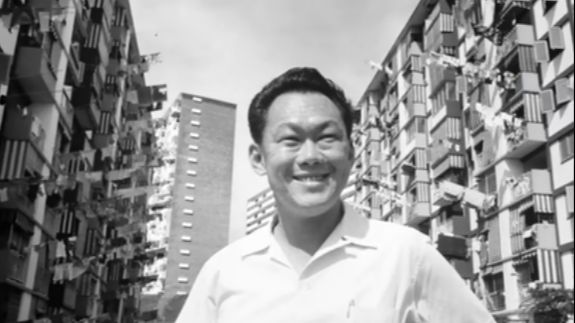Singapore in the 1950s was a tiny island, with an area of just over 700 km², often compared to Phu Quoc in Vietnam. There were no natural resources, no oil, no gold or silver, and even fresh drinking water had to be imported from Malaysia through a long pipeline. The population at that time was about 1.6 million people crammed into filthy, muddy slums with a strong stench. Chinese, Malays, Indians, and a few Europeans lived mixed together.
Ethnic conflicts occurred frequently, gangs roamed, crime was rampant everywhere, unemployment was sky-high, and many families could barely afford a decent meal. To put it bluntly, Singapore at that time was no different from a garbage dump in the middle of the ocean. No one, not even the most optimistic, dared to think that this island nation could become a dragon of Asia. Yet, from that rubble, one man dared to stand up and declare that he would turn this place into a gem. That man was Lee Kuan Yew.
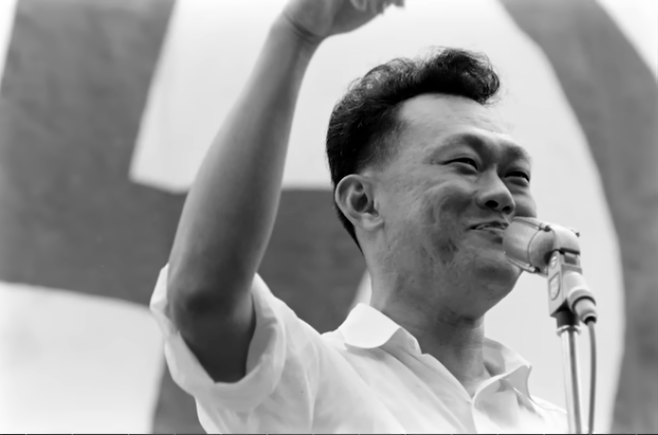
Lee Kuan Yew, whose English name is Le Quangel, was born on May 16, 1923, into a working-class Chinese family in Singapore. He grew up in an unremarkable neighborhood, witnessing inequality and poverty from a young age. His father was a clerk in a shop, and his mother was a hardworking housewife, always toiling to support the family. Although they were not wealthy, they did their best to ensure that Lee Kuan Yew received a proper education. And the boy did not disappoint his family. He was an outstanding student, always at the top of his class and won a prestigious scholarship to study law at Cambridge University, one of the most prestigious schools in the world.
At Cambridge, he not only studied law but also broadened his perspective on the world. He voraciously read about history, politics, economics, and observed how countries operated and developed. When he returned to Singapore in 1950, he brought with him a grand dream of building an independent, fair, and prosperous nation. But he knew well that in a chaotic place like Singapore, that dream was no different from trying to patch the sky with stones. In 1954, he and a group of close friends founded the People's Action Party. This party was not just a political organization but also embodied Lee Kuan Yew's vision of a Singapore free from ethnic discrimination, corruption, and capable of standing shoulder to shoulder with the great powers.
However, the road to realizing this dream was not easy. He had to face gangs, other movements, and even skepticism from the people themselves. At one point, his life was threatened, but Lee Kuan Yew never wavered. In 1959, after many years of relentless struggle, his party won a landslide victory in the elections. He became Singapore's first Prime Minister when the country was granted self-governance by Britain. But self-governance did not mean complete independence. Singapore still depended on Britain for defense and diplomacy, and internally, it was as chaotic as ever, with ethnic conflicts, protests, and movements continuously threatening stability.
Lee Kuan Yew understood that if he could not unite this multi-ethnic society, Singapore would forever be a ticking time bomb. He proposed a bold idea: to build a multicultural, multilingual society where everyone, regardless of whether they were Chinese, Malay, or Indian, would be treated equally. In 1963, hoping to bring stability and economic opportunity, Lee Kuan Yew brought Singapore into the Federation of Malaysia. He believed that uniting with Malaysia would allow Singapore to leverage larger resources and markets. But this dream quickly shattered. Malaysia prioritized policies that favored Malays over other communities. While Lee Kuan Yew was determined to protect an equal society where no one was discriminated against because of their ethnicity. The conflict escalated, leading to bloody ethnic riots in 1964. And just a year later, in 1965, a shocking event occurred.
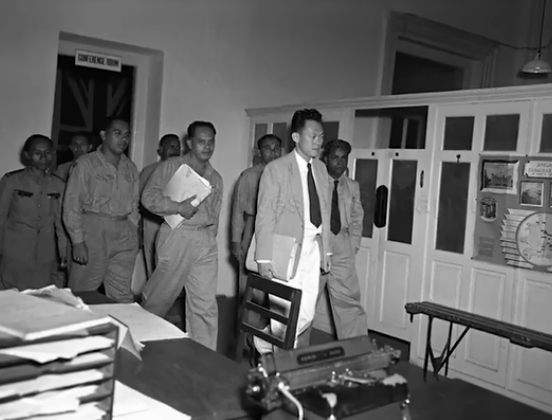
Singapore was expelled from Malaysia. A small country, without resources, an army, or fresh water, was cast adrift in the ocean. Many believed that Singapore would collapse within a few years or worse, be annexed by another country. But Lee Kuan Yew did not think so. He and his team faced an almost impossible task of transforming a chaotic, impoverished island into a prosperous nation. There was no time to complain; he rolled up his sleeves and acted with a series of bold strategies that were sometimes shocking but completely changed Singapore's fate. First of all, he knew that corruption was the number one enemy of any nation.
To tackle this issue, he strengthened the anti-corruption agency established in 1952 and empowered them to investigate anyone from low-level staff to high-ranking officials. But Lee Kuan Yew did not just punish; he did something that few leaders dared to think of: he paid extremely high salaries to government officials. He explained that if they were paid low wages, they would be tempted by bribery, but if they were paid well, they would not need to be corrupt. As a result, Singapore became one of the least corrupt countries in the world. Because employees were well-paid and the anti-corruption agency operated extremely effectively.
Next, he realized that Singapore had no natural resources, so it had to leverage its strategic geographical position. Located right in the center of the East-West shipping route, he decided to turn Singapore into an international port and a leading financial center. To achieve this, he invited multinational companies like Shell, Exxon, and IBM to invest. He built modern infrastructure.
An interesting strategy when meeting CEOs of large corporations, Lee Kuan Yew not only talked about economic benefits but also committed that Singapore would be a safe, stable, and corruption-free place. He personally met with each investor, convincing them with sincerity and vision. In just a decade, from a devastated island, Singapore became a destination for hundreds of global corporations, creating thousands of jobs and launching the economy.
Education was also a top priority for Lee Kuan Yew.
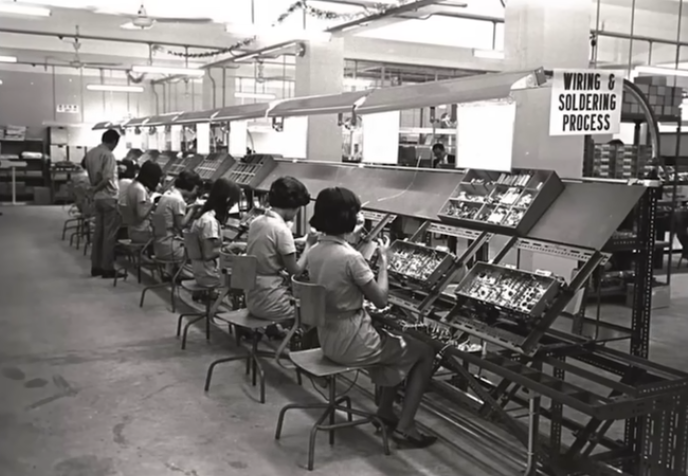
He believed that people were the most valuable asset of Singapore and that a nation could only rise if it had knowledge. He invested heavily in education, ensuring that every Singaporean child had access to school. Singapore's education system focused on mathematics, science, and English so that the people could compete in the global economy. He also encouraged women to join the workforce, which was very progressive in Asia at that time.
Lee Kuan Yew required schools to teach bilingual education, both in English and in the mother tongue, such as Chinese, Malay, or Tamil. He knew that English would help connect with the world, but the mother tongue would help connect with one's roots. Thanks to this policy, Singapore created a workforce that was not only skilled but also understood its cultural identity.
Another major challenge was the housing issue. In the 1960s, over 70% of Singapore's population lived in filthy slums, without electricity, water, or basic sanitation. Lee Kuan Yew decided to change this by establishing the Housing Development Board in 1960. This organization built a series of modern, affordable apartment complexes with full amenities, electricity, water, and clean spaces. An apartment was designed to suit multi-generational families, which fit well with Asian culture. But what was even more special was that Lee Kuan Yew did not just build houses but also planned entire green cities. He planted trees everywhere, built parks, and turned Singapore into a garden city.
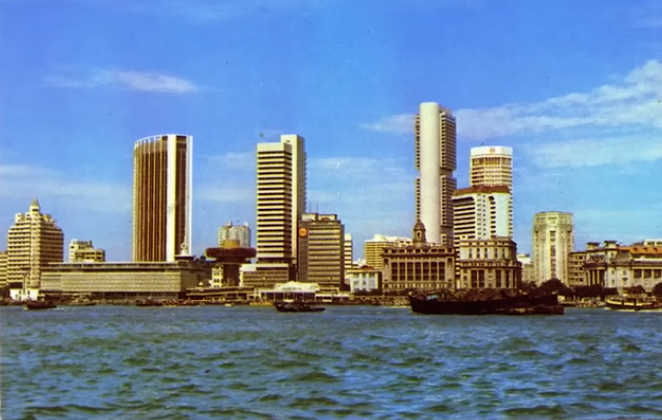
As a result, today Singapore is one of the greenest cities in the world, and over 80% of the population lives in such apartments. A housing model that the whole world learns from. An interesting detail to ensure harmony, Lee Kuan Yew required that the apartment complexes have a multi-ethnic population ratio, preventing any group from concentrating too much in one place. He also enacted strict laws against racial discrimination. For example, anyone who publicly insults the religion or ethnicity of others could face heavy fines or imprisonment. Thanks to these policies, Singapore avoided ethnic conflicts like many neighboring countries, becoming a model of harmony and multiculturalism.
Not every decision made by Lee Kuan Yew was agreed upon by everyone.
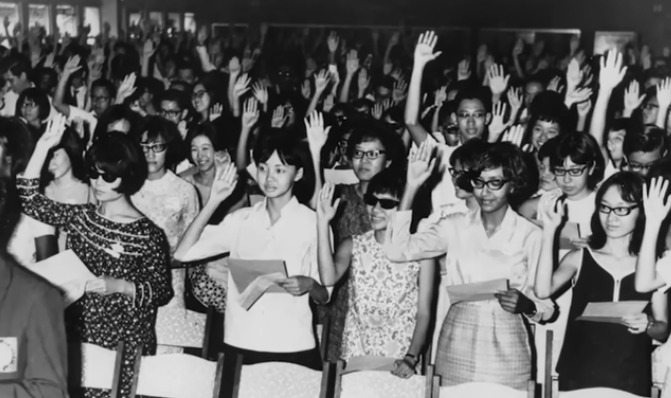
He was a tough leader, and his steely style caused quite a bit of controversy. One of the most controversial points was his tight control over the press and the limitation of freedom of speech. He believed that a young society like Singapore could not withstand incitement or fake news as they could ignite ethnic conflicts or political instability. However, this led to criticism of him as being authoritarian. Many believed that he sacrificed some freedom for prosperity and stability.
Singapore was also famous for its bizarre laws during Lee Kuan Yew's time. He imposed heavy penalties for acts such as littering, smoking in public places, or even not flushing the toilet after using public restrooms. These laws helped Singapore become one of the cleanest and safest cities in the world, but they also made many people feel constrained.
Another controversial policy was Lee Kuan Yew's elitist view. He believed that a country needed the best people to lead and he once proposed policies encouraging highly educated individuals to marry and have children with each other because he believed this would improve the gene pool. This idea was criticized as discriminatory and inhumane, leaving many people dissatisfied.
However, Lee Kuan Yew always defended his views. He served as Prime Minister of Singapore from 1959 to 1990, then continued to serve as a senior advisor until his death in 2015. Under his leadership, Singapore transformed from a poor nation into the prosperous country it is today.
